Filter by
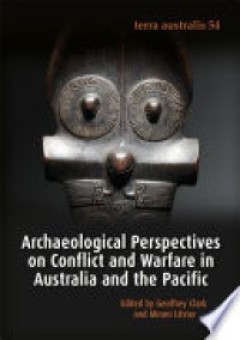
Archaeological Perspectives on Conflict and Warfare in Australia and the Pacific
When James Boswell famously lamented the irrationality of war in 1777, he noted the universality of conflict across history and across space – even reaching what he described as the gentle and benign southern ocean nations. This volume discusses archaeological evidence of conflict from those southern oceans, from Palau and Guam, to Australia, Vanuatu and Tonga, the Marquesas, Easter Island an…
- Edition
- -
- ISBN/ISSN
- 9781760464899
- Collation
- 280 p
- Series Title
- -
- Call Number
- 355.00994
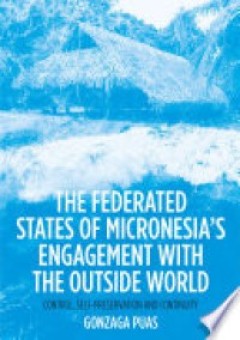
The Federated States of Micronesia’s Engagement with the Outside World Cont…
This study addresses the neglected history of the people of the Federated States of Micronesia’s (FSM) engagement with the outside world. Situated in the northwest Pacific, FSM’s strategic location has led to four colonial rulers. Histories of FSM to date have been largely written by sympathetic outsiders. Indigenous perspectives of FSM history have been largely absent from the main corpus …
- Edition
- -
- ISBN/ISSN
- 9781760464653
- Collation
- -
- Series Title
- -
- Call Number
- 996.5
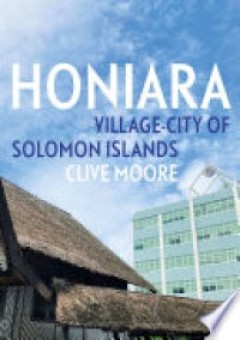
Honiara : Village-City of Solomon Islands
Nahona`ara—means ‘facing the `ara’, the place where the southeast winds meet the land just west of Point Cruz. Nahona`ara became Honiara, the capital city of Solomon Islands with a population of 160,000, the only significant urban centre in a nation of 721,000 people. Honiara: Village-City of Solomon Islands views Honiara in several ways: first as Tandai traditional land; then as cocon…
- Edition
- -
- ISBN/ISSN
- 9781760465070
- Collation
- -
- Series Title
- -
- Call Number
- 995.93

"Religious Identifications in Late Antique Papyri "
This volume provides novel social-scientific and historical approaches to religious identifications in late antique (3rd–12th century) Egyptian papyri, bridging the gap between two academic fields that have been infrequently in full conversation: papyrology and the study of religion. Through eleven in-depth case studies of Christian, Islamic, “pagan,” Jewish, Manichaean, and Hermetic t…
- Edition
- -
- ISBN/ISSN
- -
- Collation
- -
- Series Title
- -
- Call Number
- -
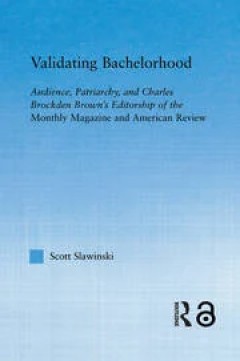
Validating Bachelorhood
This book explores images of single and married men in C.B. Brown's Monthly Magazine and concludes that Brown used his periodical as a vehicle for validating bachelorhood as a viable alternative form of masculinity.
- Edition
- -
- ISBN/ISSN
- -
- Collation
- -
- Series Title
- -
- Call Number
- -
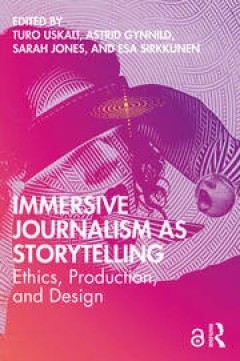
Immersive Journalism as Storytelling
This book sets out cutting-edge new research and examines future prospects on 360-degree video, virtual reality (VR), and augmented reality (AR) in journalism, analyzing and discussing virtual world experiments from a range of perspectives. Featuring contributions from a diverse range of scholars, Immersive Journalism as Storytelling highlights both the opportunities and the challenges prese…
- Edition
- -
- ISBN/ISSN
- -
- Collation
- -
- Series Title
- -
- Call Number
- -
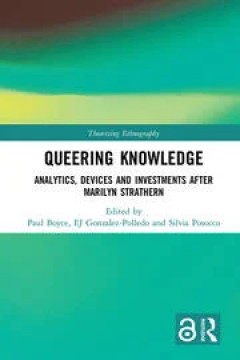
Queering Knowledge
This volume draws on the significance of the work of Marilyn Strathern in respect of its potential to queer anthropological analysis and to foster the reimagining of the object of anthropology. The authors examine the ways in which Strathern’s varied analytics facilitate the construction of alternative forms of anthropological thinking, and greater understanding of how knowledge practices …
- Edition
- -
- ISBN/ISSN
- -
- Collation
- -
- Series Title
- -
- Call Number
- -
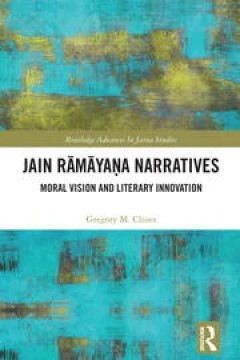
Jain Rāmāyaṇa Narratives
Jain Rāmāyaṇa Narratives: Moral Vision and Literary Innovation traces how and why Jain authors at different points in history rewrote the story of Rāma and situates these texts within larger frameworks of South Asian religious history and literature. The book argues that the plot, characters, and the very history of Jain Rāma composition itself served as a continual font of inspiration…
- Edition
- -
- ISBN/ISSN
- -
- Collation
- -
- Series Title
- -
- Call Number
- -
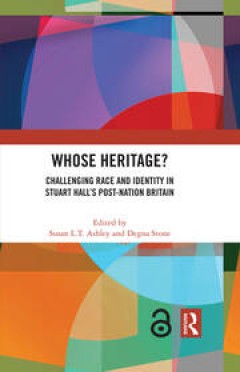
Whose Heritage? Challenging Race and Identity in Stuart Hall’s Post-nation …
BSTRACT This edited collection challenges and re-imagines what is ‘heritage’ in Britain as a globalised, vernacular, cosmopolitan ‘post-nation’. It takes its inspiration from the foundational work of public intellectual Stuart Hall (1932–2014). Hall was instrumental in calling out embedded elitist conceptions of ‘The Heritage’ of Britain. The book’s authors challenge us to r…
- Edition
- -
- ISBN/ISSN
- 9781003092735
- Collation
- -
- Series Title
- -
- Call Number
- 306

Directing
Please view this book as a source of knowledge but know that every director you meet both good and bad you will learn from. Your journey is never over and the goal of any artist should be to take the lessons of the past, learn from your own experience, and transform your understanding into a unique approach that will change the future of the artform. This is my gift to you as you are the future…
- Edition
- -
- ISBN/ISSN
- -
- Collation
- -
- Series Title
- -
- Call Number
- 700 GAR d
 Computer Science, Information & General Works
Computer Science, Information & General Works  Philosophy & Psychology
Philosophy & Psychology  Religion
Religion  Social Sciences
Social Sciences  Language
Language  Pure Science
Pure Science  Applied Sciences
Applied Sciences  Art & Recreation
Art & Recreation  Literature
Literature  History & Geography
History & Geography